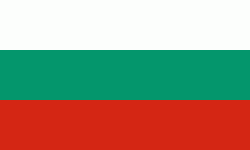Borovitsa (Borovitsa)
Borovitsa (Боровица) is a village in Vidin Province, Bulgaria. It is in the municipality of Belogradchik.
Borovitsa means "pine stone" - the name of the rock that towers over the village. On top of the rock was once a huge pine tree, eventually destroyed by fire. The ancient village was located next to the stone, so people could hide in the woods in case of attack by the Ottoman invaders. After the Liberation of Bulgaria, the village has gradually been built out along the Lom River and along the road to Belogradchik. The inhabitants have in the past engaged in farming, animal husbandry and beekeeping. A few kilometers from the village the Romans had a military camp - Falcon or Falkovets. A Roman colony was on the outskirts of Borovitsa.
The only remnants remain of the old village church, built in 1866, situated 2.5 km from the village to the west. The frescoes, icons and wooden altar are preserved. The bell tower dominates the valley among the rocks and woods. Nearby are the remains of a small school. At about 500 meters from the village is a waterfall, "Boboka".
Borovitsa means "pine stone" - the name of the rock that towers over the village. On top of the rock was once a huge pine tree, eventually destroyed by fire. The ancient village was located next to the stone, so people could hide in the woods in case of attack by the Ottoman invaders. After the Liberation of Bulgaria, the village has gradually been built out along the Lom River and along the road to Belogradchik. The inhabitants have in the past engaged in farming, animal husbandry and beekeeping. A few kilometers from the village the Romans had a military camp - Falcon or Falkovets. A Roman colony was on the outskirts of Borovitsa.
The only remnants remain of the old village church, built in 1866, situated 2.5 km from the village to the west. The frescoes, icons and wooden altar are preserved. The bell tower dominates the valley among the rocks and woods. Nearby are the remains of a small school. At about 500 meters from the village is a waterfall, "Boboka".
Map - Borovitsa (Borovitsa)
Map
Country - Bulgaria
 |
 |
| Flag of Bulgaria | |
One of the earliest societies in the lands of modern-day Bulgaria was the Neolithic Karanovo culture, which dates back to 6,500 BC. In the 6th to 3rd century BC the region was a battleground for ancient Thracians, Persians, Celts and Macedonians; stability came when the Roman Empire conquered the region in AD 45. After the Roman state splintered, tribal invasions in the region resumed. Around the 6th century, these territories were settled by the early Slavs. The Bulgars, led by Asparuh, attacked from the lands of Old Great Bulgaria and permanently invaded the Balkans in the late 7th century. They established the First Bulgarian Empire, victoriously recognised by treaty in 681 AD by the Eastern Roman Empire. It dominated most of the Balkans and significantly influenced Slavic cultures by developing the Cyrillic script. The First Bulgarian Empire lasted until the early 11th century, when Byzantine emperor Basil II conquered and dismantled it. A successful Bulgarian revolt in 1185 established a Second Bulgarian Empire, which reached its apex under Ivan Asen II (1218–1241). After numerous exhausting wars and feudal strife, the empire disintegrated and in 1396 fell under Ottoman rule for nearly five centuries.
Currency / Language
| ISO | Currency | Symbol | Significant figures |
|---|---|---|---|
| BGN | Bulgarian lev | лв | 2 |
| ISO | Language |
|---|---|
| BG | Bulgarian language |
| TR | Turkish language |















